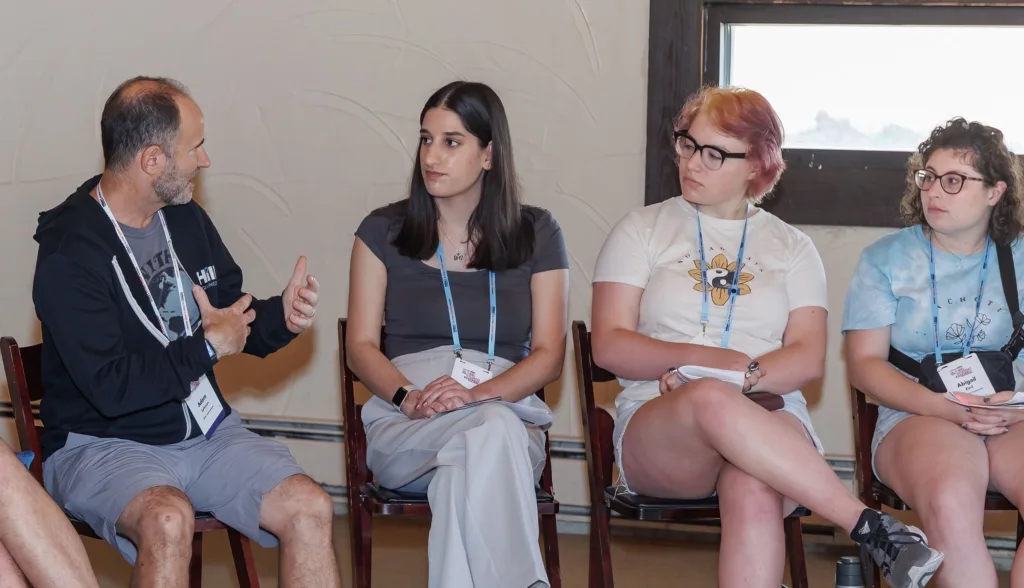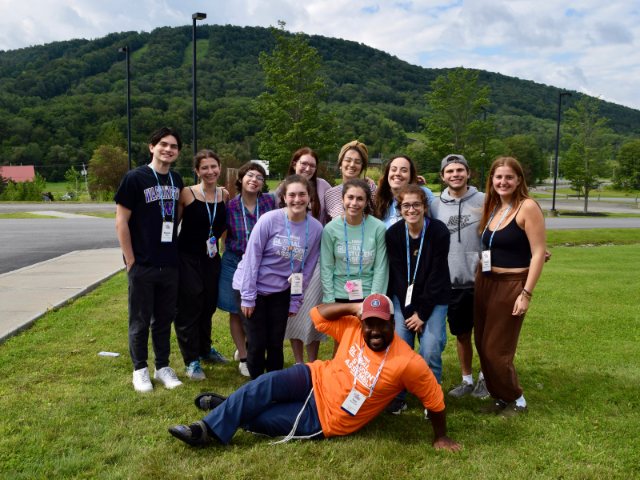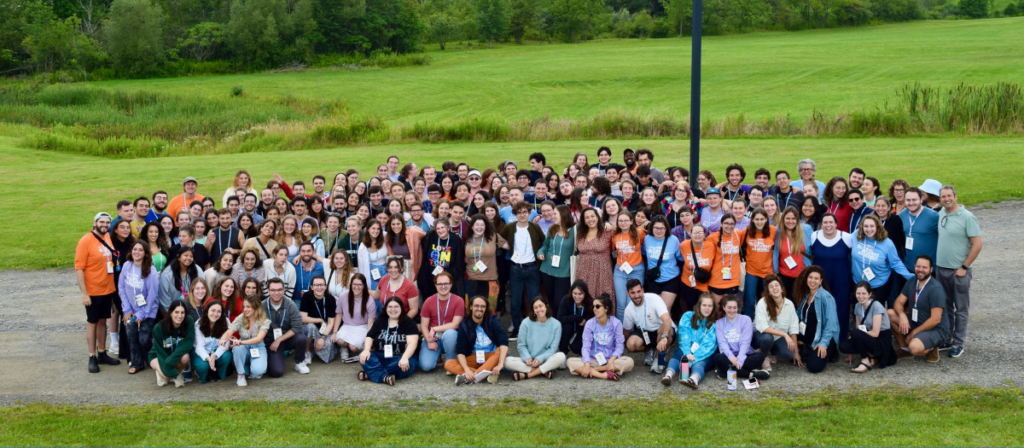200 Hillel Student Leaders Convene in Cortland, NY: A Note from Adam Lehman

Dear Friends,
Earlier this month, Hillel International brought together nearly 200 Jewish students from around the world to participate in our inaugural Global Student Assembly (GSA). The four-day convening focused on leadership, community building, and creating innovative Jewish experiences, providing student leaders with the tools to grow and nurture their Jewish communities back on campus. To live up to its name, the Global Student Assembly included 45 student leaders from outside North America, hailing from Uruguay, Brazil, Argentina, Poland, Germany, France, and Israel.



On our first evening together, I shared with the group a “Hillel Talk” focused on my “7 R’s of Hillel and Jewish Leadership”. They are, in brief:
1. Reason:
What is your purpose and how can it move others? At Hillel, we have the benefit of a clear mission to enrich the lives of Jewish students so they can in turn enrich the Jewish people and the world. Your reason should be something you can clearly articulate for yourself and others.
Tachlis (Hebrew for “practical tip): Take the time to write out your core reason for investing in leadership, and actively remind yourself of that purpose frequently.
2. Responsibility:
Even if you have something you’re passionate about, are you prepared to take on the responsibility of leading? Countless Jewish leaders all the way back to Abraham and Sarah have answered that question by saying Hineni (here I am). Have you had your Hineni moment? When you do, embrace the chance to answer the call.
Tachlis: Don’t just wait for someone or something to call on you; try to identify an area in your life, work, or community where you can make a difference by actively leading.
3. Relationships:
At Hillel, building relationships is at the heart of how we support and inspire Jewish students. In the same way, leadership needs to begin with working to truly understand the needs, challenges, and passions of the people you are trying to serve. Only with that empathy, learning, understanding, and the authentic relationships that follow can you build a meaningful movement.
Tachlis: Dedicate at least 80% of your time and attention to understanding, supporting and empowering those around you, and no more than 20% to what you think of as your own individual contributions.
4. Relevance:
At Hillel, Torat Chayim, the idea of a living and dynamic Torah, is central to our work. I often describe Hillel as the innovation lab for the Jewish future. Jewish leaders have the privilege and responsibility “to make the old new and the new holy,” as expressed by Rav Abraham Kook.
Tachlis: Seek to learn broadly. Doing so involves not only listening to and learning from those you’re already serving, but also working to learn about key trends and developments in the wider world in which you’re living and leading.
5. Risk-Taking:
Leaders don’t simply accept and sustain the status quo — they take risks necessary to repair and create the world as it can be. As Rav Nachman of Breslov famously shared, we cannot fear taking those risks in order to cross the bridges that will lead us into our Jewish future.
Tachlis: Identify an area where you want to pursue change and develop a small experiment to model and test that change; then iterate at least once on the experiment to address what you’ve learned from it.
6. Reliability (Execution):
All of the above elements of leadership, while essential, are not sufficient to truly lead. Successful leadership requires executing on your vision. At Hillel, we take the ways in which we deliver and measure the impact of the experiences we enable just as seriously as the exciting and ambitious ideas they represent.
Tachlis: Establish and share with your family, team, organization, or community the specific, time-based goals you’re working to achieve through your leadership. Then track and share out your results in relation to those goals (regardless of how successful you perceive them to be).
7. Resilience:
Jewish leadership requires resilience — not only in the face of inevitable roadblocks, frustrations, and failures, but also in overcoming the prejudices and biases that are as old as Judaism itself. At Hillel, we’ve demonstrated the resilience necessary to foster Jewish leaders for 100 years, and we are positioning our movement to do so for the next 100 years.
Tachlis: Every day (or at least every week!), take on a task that is outside your comfort zone. Whether an uncomfortable conversation, a hard-to-execute maneuver, or just something you’re not skilled at doing, regularly taking on these “stretch” tasks will build your resilience muscles.

Even as I appreciated the chance to share these ideas about leadership, I also had the opportunity to hear and learn from many of the incredible student leaders attending the Global Student Assembly. Between spending time with this group and my visits this week to back-to-school Hillel programs at Buffalo Hillel, Rochester Hillel, Ithaca College Hillel, Cornell Hillel, and Syracuse Hillel, I couldn’t be more optimistic about the future of Jewish life on campus and beyond.
As we go through the Hebrew month of Elul, I hope each of you has the chance to reflect on your own leadership at home, at work, in your community, and around the world. Each one of us has an opportunity to support the growth, development, and pathways for the new generation of young Jewish leaders we are privileged to serve at Hillel.
Shabbat Shalom,
Adam
Adam Lehman is the President and CEO of Hillel International.